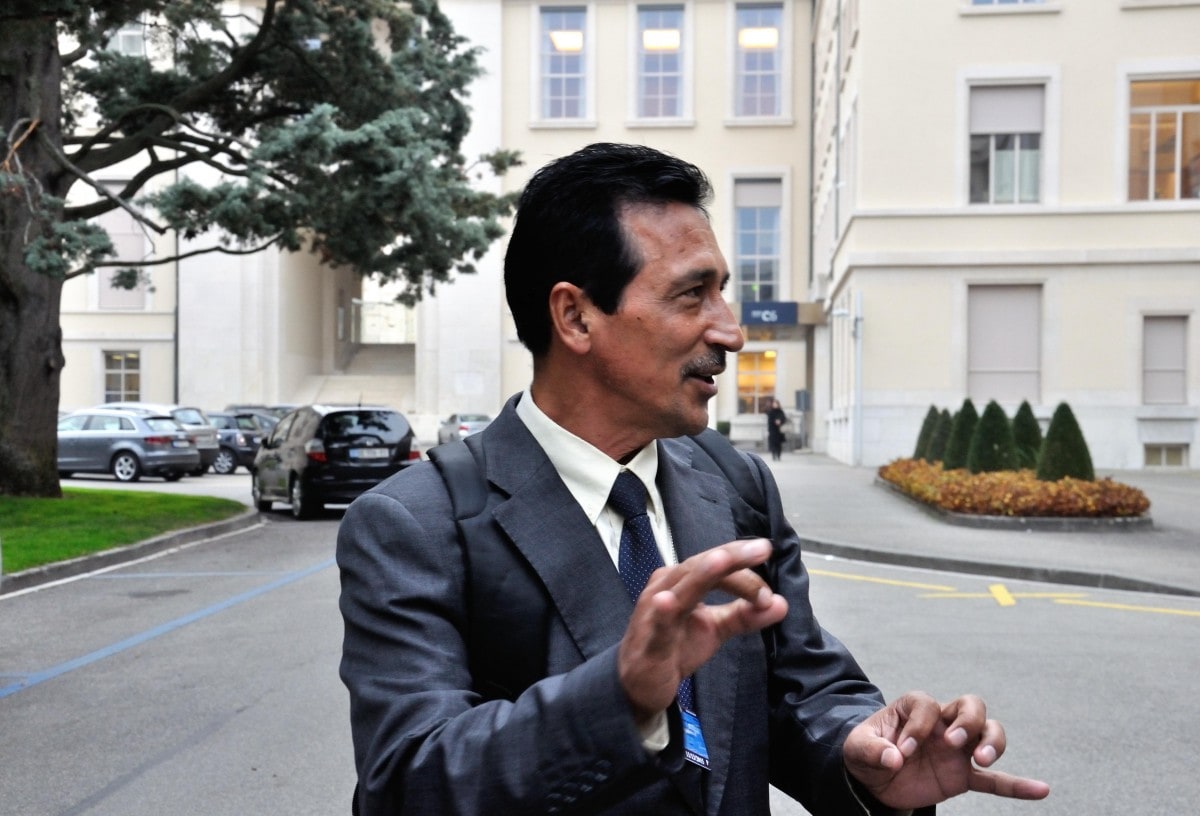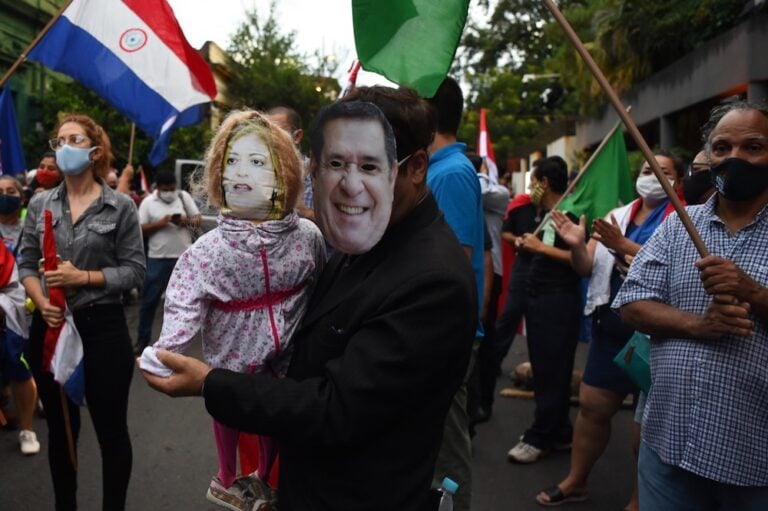On 20th January, Paraguay's human rights record is under the spotlight at the United Nations. Ana Fondo interviewed Francisco Medina about the deteriorating conditions in Paraguay during an IFEX-ALC lobbying mission to Geneva in November 2015.
Geneva, 11 November – Two of the 17 journalists killed in Paraguay since 1997 were Salvador and Pablo, brothers of Francisco Medina, who is currently in Geneva to denounce before the United Nations (UN) the deterioration in freedom of expression in his country. Medina told Panorama that he is taking this action despite the fact that his visit to the UN exposes him to reprisals and puts his own life at risk.
Since 2013, when Horacio Cartes became president of Paraguay, “attacks against small and medium-size media outlets have increased, but nobody does anything about it,” said Medina. He added that there exists a “clear intention on the part of the government to monopolise the press and censor journalists, since “Cartes’s business group has carried out massive purchases of radio stations and newspapers in recent years.”
In addition to Salvador and Pablo, who were assassinated in 2001 and 2014 respectively, the Medina family lost a third brother in a case that has links to organised crime. Francisco has continued to demand answers from the government, to no avail. “The only thing we ask is for the government to approach us and conduct a formal follow-up. They should create a specialised prosecutor’s office to investigate these crimes,” Medina said during our interview at the UN’s European headquarters.
With respect to the assassination of his brother Pablo, Medina told Panorama that even though the authorities know who was responsible for the crime, nobody has been brought to justice. “The mastermind behind the operation has been charged, but the other three assassins linked to the crime are still at large. My family has spoken with the authorities and the National Police commander said that they cannot do anything because of issues within the police ranks. This means that, even though investigations have shown evidence of links between the authorities and local organised crime groups, nobody takes action. Medina is of the opinion that there exists “an order from within” for investigators, police officers and other bodies to “refrain from interfering in particular cases.”
“It leads to a feeling of helplessness. They get what they want. They are involved at all levels within the power structure. So, what happens? The mafia and organised crime are winning, citizens are losing,” said Medina.
The visit to the UN was also attended by Santiago Ortiz, secretary general of the Paraguayan Journalists’ Union (SPP, in Spanish), Rachael Kay, deputy executive director of IFEX, the global network promoting and defending free expression, and Omar Rábago, executive director of the Centro Nacional de Comunicación Social (CENCOS) in Mexico, an IFEX member organisation.
During the visit, meetings have been held with the UN Office of the High Commissioner for Human Rights’ delegate for Paraguay and with various diplomatic missions in order to raise awareness about the situation and call for recommendations to be formulated to protect journalists and freedom of expression in the country, as part of the upcoming Universal Periodic Review process for Paraguay scheduled to take place in January 2016.
Francisco Medina hopes these actions will lead to an end to impunity, a commitment to provide guarantees for freedom of expression and provision of assistance to victims by the Paraguayan government.
A short clip from the IFEX-ALC’s interview with Francisco is included below:



